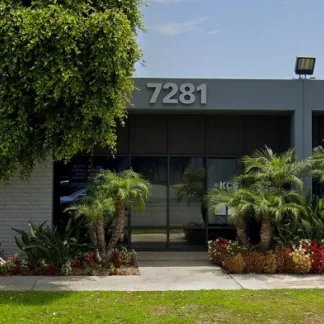Los Alamitos Medical Center
Los Alamitos Medical Center is a private rehab located in Los Alamitos, Californ...
K C Services – Garden Grove Blvd offers office-based addiction and mental health treatment for adults. Located in Garden Grove, California, clients can also access valuable community resources, including referrals, counseling, domestic violence programs, and family support services.
Treatment at K C Services – Garden Grove Blvd begins with a mental health assessment to screen for symptoms of addiction or co-occurring mental health disorders. Other services include the following:
Adults attend individual and group treatment sessions for improved coping skills, and peer support. Services also include counseling, case management, drug screening, and recovery support meetings. Sessions are held 3-4 days a week.
KC Services supports individuals with and/or facing DUI charges. Their DUI programs involve a drug and alcohol assessment, treatment plan, and outpatient addiction treatment.
K C Services – Garden Grove Blvd accepts Medicare, and Medi-Cal, and provides sliding fee scale options for individuals without insurance. You’ll want to check with your provider to verify specific coverage details, including your out-of-network benefits.
Contact us for more information: (714) 539-4544

Connect with K C Services - Garden Grove Blvd by calling their admissions team directly.
(714) 539-4544 Website Get DirectionsThey also offer Family Violence Programs. Clients of their FV program may also be mandated to being involve in their Family's substance abuse program. Topics include the physiological and psychological aspects of substance abuse, relapse and recovery and a 12-step program.
Group therapy is any therapeutic work that happens in a group (not one-on-one). There are a number of different group therapy modalities, including support groups, experiential therapy, psycho-education, and more. Group therapy involves treatment as well as processing interaction between group members.
In individual therapy, a patient meets one-on-one with a trained psychologist or counselor. Therapy is a pivotal part of effective substance abuse treatment, as it often covers root causes of addiction, including challenges faced by the patient in their social, family, and work/school life. Individual counseling can be arranged on a case by case basis according to need.
Life skills trainings involve all the skills a person must have in order to function successfully in the world. These include time management, career guidance, money management, and effective communication. Truly successful addiction recovery is based on the ability to not only live substance-free, but to thrive. Life skills teaches the practical necessities of functioning in society, which sets clients up for success in life, and therefore sobriety.
Group therapy is any therapeutic work that happens in a group (not one-on-one). There are a number of different group therapy modalities, including support groups, experiential therapy, psycho-education, and more. Group therapy involves treatment as well as processing interaction between group members.
In individual therapy, a patient meets one-on-one with a trained psychologist or counselor. Therapy is a pivotal part of effective substance abuse treatment, as it often covers root causes of addiction, including challenges faced by the patient in their social, family, and work/school life. Individual counseling can be arranged on a case by case basis according to need.
Life skills trainings involve all the skills a person must have in order to function successfully in the world. These include time management, career guidance, money management, and effective communication. Truly successful addiction recovery is based on the ability to not only live substance-free, but to thrive. Life skills teaches the practical necessities of functioning in society, which sets clients up for success in life, and therefore sobriety.
In individual therapy, a patient meets one-on-one with a trained psychologist or counselor. Therapy is a pivotal part of effective substance abuse treatment, as it often covers root causes of addiction, including challenges faced by the patient in their social, family, and work/school life. Individual counseling can be arranged on a case by case basis according to need.
Life skills trainings involve all the skills a person must have in order to function successfully in the world. These include time management, career guidance, money management, and effective communication. Truly successful addiction recovery is based on the ability to not only live substance-free, but to thrive. Life skills teaches the practical necessities of functioning in society, which sets clients up for success in life, and therefore sobriety.
Life skills trainings involve all the skills a person must have in order to function successfully in the world. These include time management, career guidance, money management, and effective communication. Truly successful addiction recovery is based on the ability to not only live substance-free, but to thrive. Life skills teaches the practical necessities of functioning in society, which sets clients up for success in life, and therefore sobriety.
Los Alamitos Medical Center is a private rehab located in Los Alamitos, Californ...
Southern California Alcohol is a private rehab located in Anaheim, California. S...
Coastline Behavioral Health is a drug and alcohol rehab located in Huntington Be...
Faith Recovery is a private rehab located in Long Beach, California. Faith Recov...